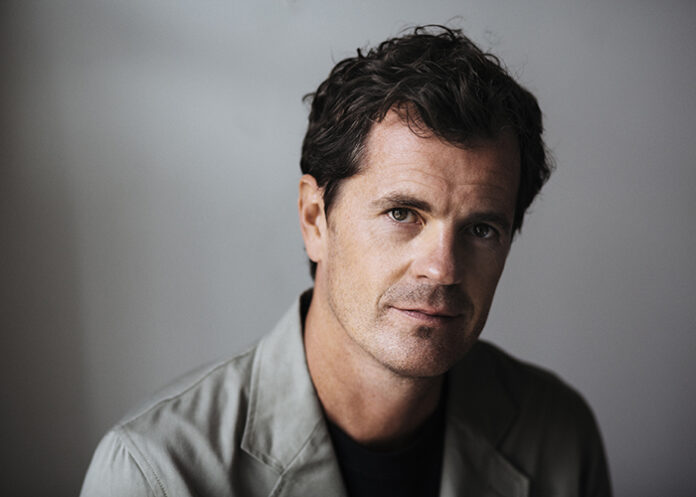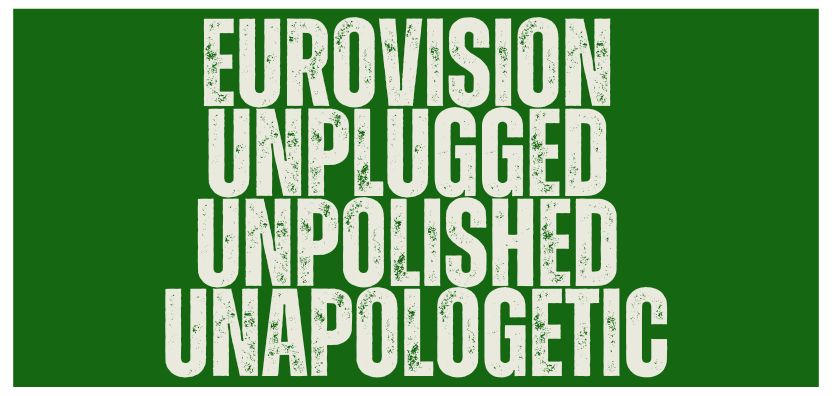
|
Getting your Trinity Audio player ready...
|
Martin Österdahl’s departure as Eurovision’s Executive Supervisor was less a bolt from the blue and more the inevitable conclusion to five turbulent years that transformed both him and the contest forever.
The Swedish television executive announced his resignation on June 27, 2025, bringing to a close one of the most challenging tenures in Eurovision’s modern history. For those who had been following the contest’s increasingly fractious politics, the departure was hardly surprising. After weathering controversies ranging from geopolitical tensions to jury scandals, and facing audible boos from the Malmö crowd in 2024, Österdahl’s exit felt more like the final act of a predetermined drama than an unexpected plot twist.
A Career Built on Swedish Television Excellence
Before Eurovision consumed his professional life, Österdahl had established himself as one of Swedish television’s most accomplished executives. Born in 1973, he grew up between Stockholm and London in a musical family—his father ran the recording studio Marcus Music, while his mother worked in music publishing. This early exposure to the music industry would prove prescient for his later Eurovision role.
Österdahl’s career trajectory at SVT (Swedish Television) was nothing short of remarkable. He became the youngest Programme Director in the broadcaster’s history, overseeing 24,000 hours of annual TV production with a team of 2,300 employees. Under his leadership, SVT transformed from a declining broadcaster into Sweden’s largest and most popular TV channel, creating hit shows like Skavlan, Mästarnas Mästare, and Allt för Sverige.
 His Eurovision credentials were equally impressive. As Executive Producer for the 2013 contest in Malmö and 2016 in Stockholm, he delivered what many consider among the finest Eurovision productions ever mounted. The 2013 contest was particularly noteworthy, produced on the lowest budget of the 2000s yet widely regarded as one of the better contests in the event’s history. For this achievement, he was named Project Leader of the Year 2013 by the Swedish project industry.
His Eurovision credentials were equally impressive. As Executive Producer for the 2013 contest in Malmö and 2016 in Stockholm, he delivered what many consider among the finest Eurovision productions ever mounted. The 2013 contest was particularly noteworthy, produced on the lowest budget of the 2000s yet widely regarded as one of the better contests in the event’s history. For this achievement, he was named Project Leader of the Year 2013 by the Swedish project industry.
But Österdahl’s interests extend beyond television. He is also an accomplished author, having written thriller novels that have been translated into 10 languages. His latest work, “The Crayfish Party,” establishes him as “one of the most exciting new voices in the domestic noir genre”. This creative diversity reflects his lifelong attempt to “combine the forces of both brain halves: to be both creative and business-minded”.
The Eurovision Years: Innovation Amid Chaos
When Österdahl succeeded Jon Ola Sand as Eurovision’s Executive Supervisor in 2020, he inherited what should have been a celebratory role. Instead, he found himself immediately thrust into crisis management as the COVID-19 pandemic forced the cancellation of Eurovision 2020. His first contest became the pandemic-affected Rotterdam 2021, setting the tone for what would prove to be five years where no edition could be considered “ordinary”.

To his credit, Österdahl implemented significant modernisation efforts. He established the permanent “United By Music” slogan, attracted long-term sponsors including the controversial Moroccanoil partnership, and expanded digital engagement that brought millions of new fans to the contest. The numbers speak to his commercial success: Eurovision 2025 reached 166 million viewers across 37 markets with the highest viewing share since 2004.
Yet these very successes became sources of controversy. The Moroccanoil sponsorship, extended despite public opposition, drew criticism from fans who questioned the partnership with an Israeli company during ongoing conflicts in Gaza. Similarly, the emphasis on social media partnerships, particularly with TikTok, was seen by some as prioritising commercial interests over press freedom and transparency.
Controversies That Defined a Tenure
Österdahl’s five-year tenure was marked by an unprecedented series of crises. Belarus was expelled in 2021 for submitting songs with political undertones supporting President Lukashenko’s regime. Russia followed in 2022 after its invasion of Ukraine, a decision that established precedents that would later complicate decisions about other participating countries.
The 2022 contest brought its own challenges with a major jury voting scandal. Six countries—Azerbaijan, Georgia, Montenegro, Poland, Romania, and San Marino—were found to have coordinated their jury votes, leading to their disqualification and replacement with aggregate results. This incident raised fundamental questions about the integrity of Eurovision’s voting system that continue to resonate today.

But it was the Israel controversy that truly tested Österdahl’s leadership. Despite calls for exclusion following the Gaza conflict, Israel participated in both 2024 and 2025, leading to unprecedented tensions. The 2024 contest in Malmö was particularly fractious, culminating in the disqualification of the Netherlands’ Joost Klein hours before the final. When Österdahl appeared on stage to confirm voting integrity, he was audibly booed by the crowd—a moment that crystallised public dissatisfaction with his leadership.
The aftermath of Malmö 2024 was damning. Sixteen delegations filed complaints, six countries threatened withdrawal, and multiple broadcasters questioned whether they would continue participating without greater transparency. An independent review led by former Eurovision producer Pernille Gaardbo spoke with over 50 stakeholders and delivered recommendations that effectively restructured Eurovision’s leadership.
The Organisational Reckoning
The most telling indication of institutional loss of confidence came in the form of organisational changes implemented before Eurovision 2025. The EBU created a new position of Eurovision Director, filled by Martin Green, the successful producer of Liverpool 2023. This role was explicitly positioned above Österdahl’s Executive Supervisor position, stripping him of branding and commercial responsibilities.
The change was stark in its symbolism. During Eurovision 2025, Österdahl was barely visible, reduced to a silent thumbs-up gesture to confirm voting integrity rather than his traditional spoken confirmation. Press conferences were handled by Green, who took on the public-facing role that had once been Österdahl’s domain.
This restructuring reflected a broader institutional recognition that Eurovision had outgrown its existing management structure. As the EBU acknowledged, “The Eurovision Song Contest has grown explosively over the last four years and the organisation has in many cases gotten away from us”. The creation of additional oversight roles suggested that the problems were not solely about individual leadership but about systemic capacity.
Right Steps Amid the Wreckage
Despite the controversies, Österdahl’s tenure included genuine achievements that should not be overlooked. His successful management of Eurovision 2021 in Rotterdam, delivered under pandemic conditions, demonstrated his operational capabilities. The contest’s continued growth in viewership and digital engagement, culminating in record-breaking figures for 2025, reflected his understanding of modern media consumption.
His commitment to Eurovision’s core values also deserves recognition. During the 2024 crisis, he consistently emphasised the contest’s mission to “unite people through music” and fought against hate directed at participants. His modernisation efforts, while controversial in execution, acknowledged the need for Eurovision to adapt to changing media landscapes and audience expectations.
A Departure Foretold
By early 2025, Österdahl’s departure felt inevitable rather than surprising. The organisational restructuring had already diminished his role, while the continuing controversies over Israel’s participation and voting integrity created an untenable position. The fact that his resignation was announced a little over a month since the 2025 contest suggested that plans for his exit had been in motion for some time.

The timing also reflected pragmatic considerations. With Eurovision’s 70th anniversary approaching in 2026, the EBU clearly wanted a fresh start with new leadership. Martin Green’s appointment as Director provided institutional continuity while allowing for a clean break from the controversies that had defined the Österdahl era.
In his departure statement, Österdahl struck a gracious tone, expressing gratitude for his “honour to lead the world’s biggest music event” and pride in developing Eurovision “into a global superbrand”. His emphasis on the contest’s ability to “unite people through music” suggested genuine belief in Eurovision’s mission, even amid the political storms that buffeted his tenure.
Beyond Eurovision: A Return to Creative Roots
Österdahl’s post-Eurovision future appears to lie in his other passion: writing. His successful thriller series and recent standalone novel suggest a creative outlet that may prove more personally fulfilling than managing geopolitical controversies. His experience managing high-pressure, complex projects—from Swedish television to Eurovision—provides rich material for the kind of sophisticated thrillers that have already earned him international recognition.
His broader media expertise also positions him well for other roles in the rapidly evolving entertainment industry. His understanding of both traditional broadcasting and digital engagement, forged through his Eurovision modernization efforts, remains valuable in an increasingly fragmented media landscape.
Legacy of a Turbulent Era

Martin Österdahl’s Eurovision tenure will be remembered as a period of transformation achieved through crisis. He modernised the contest’s commercial and digital infrastructure while navigating unprecedented political challenges that would have tested any leader. His innovations in sponsorship, digital engagement, and global expansion laid foundations that his successors will build upon.
Yet his legacy is inseparable from the controversies that defined it. The Israel dispute, jury scandals, and organisational restructuring highlighted fundamental tensions within Eurovision about its political neutrality, democratic governance, and institutional capacity. These challenges predated Österdahl’s arrival and will likely outlast his departure.
Perhaps most significantly, his tenure demonstrated Eurovision’s resilience. Despite boycott calls, viewing figure fears, and organisational upheaval, the contest continued to grow in reach and cultural impact. This suggests that Eurovision’s appeal transcends individual leadership, rooted in deeper audience needs for shared cultural experiences and musical discovery.
The five years of Martin Österdahl’s leadership transformed Eurovision from a primarily European television show into a global entertainment phenomenon. That this transformation occurred amid unprecedented challenges speaks to both his capabilities and the contest’s fundamental durability. His departure marks not the end of Eurovision’s evolution, but rather a new chapter in its ongoing adaptation to an increasingly complex world.






one decision under his tenure that the article didn’t mention is the decision to allow recorded backing vocals. The decision was taken prior to the 2021 contest and was explained from a financial point of view, to help delegation to cut costs. It was also supposed to be implemented for 1 year.
The financial point of view is a bit of bullshit and like many things in Eurovision, temporary things stay for ever.
The recorded backing vocals is shamble. No one actually enforce this one and sometimes the recorded vocals are form the lead singer, which are supposed to be always live.
If Eurovision sounds more like a karaoke competition, it is because of this awful decision.